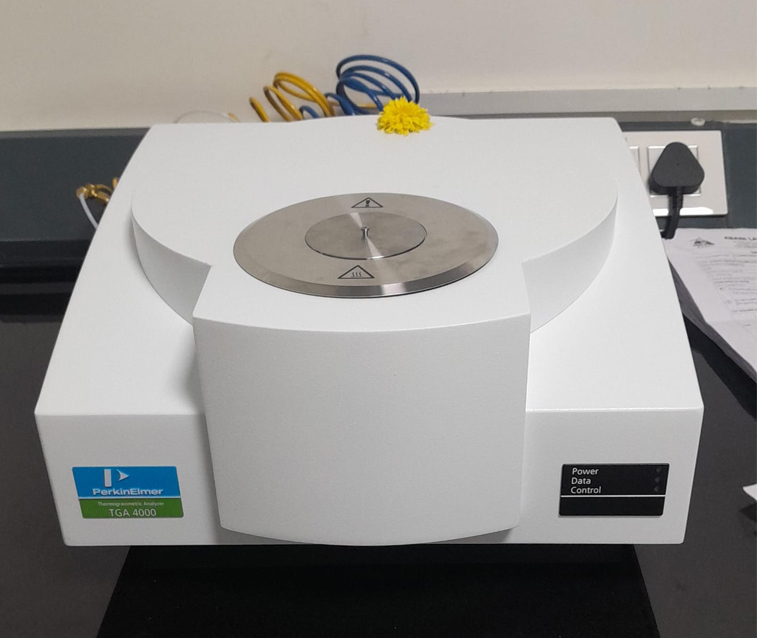TGA :
Thermogravimetric analysis is a powerful technique for the measurement of thermal stability of
materials including polymers. In this method, changes in the weight of a specimen are measured
while its temperature is increased. Moisture and volatile contents of a sample can be measured
by TGA.
Applications of TGA
TGA is primarily used to
characterize materials by measuring their change in mass as a
function of temperature.
Through this process and the measurements that can be very accurately
derived from it, TGA can be used to determine a substance’s:
-
 Changes in mass due to decomposition, oxidation, evaporation, or combustion
Changes in mass due to decomposition, oxidation, evaporation, or combustion -
 Absorbed moisture content
Absorbed moisture content -
 Volatilization rate of materials
Volatilization rate of materials -
 Thermal cracking point of base fluids or formulations contained within the substance
Thermal cracking point of base fluids or formulations contained within the substance
TGA is especially useful for studying polymer-based products that react to
high heat or rapid temperature changes in specific ways.
The most common application of TGA in business and industry is to test the thermal
resistance of products for quality assurance and safety purposes. For example: By testing
a product’s resistance to heat and temperature fluctuations, as well as identifying the
points at which it decomposes, evaporates, or otherwise breaks, analysts can determine
whether a product meets industry standard quality and stability parameters for safe use.
